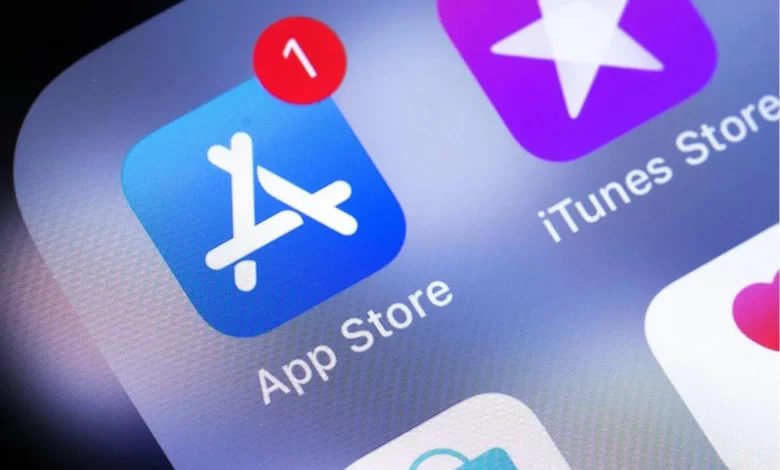
With this decision, Apple has significantly departed from its long-standing ecosystem strategy and is likely to drastically alter the user experience for European iPhone owners. European consumers can now remove the App Store from their smartphones for the first time. This action represents Apple’s adherence to the changing legislative environment inside the European Union and indicates a change in favour of increased consumer flexibility and autonomy. This article examines the decision’s implications, the factors that led to it, and the implications it has for users and the larger tech sector.
The Background: A New Era of Digital Freedom
Store, which is the heart of Apple’s well-managed ecosystem. A non-negotiable component of Apple’s software architecture has been the App Store’s inclusion on every iPhone. This ensures a reliable and safe user experience for consumers while generating significant revenue for Apple through its commission structure on app sales and in-app purchases.
But the Digital Markets Act (DMA) of the European Union, which went into effect in 2024, has forced digital companies to provide customers more flexibility and options. By imposing regulations on gatekeeper platforms—a category that includes Apple’s App Store—the DMA seeks to stop anti-competitive behaviour and give customers more influence. In keeping with its conformity
Why This Change Matters
The option to remove apps from the App Store represents a significant change in Apple’s user interface, not merely a surface-level adjustment. Apple recognises the growing demand for user liberty by permitting the removal of what was formerly an essential part of iOS. Wide-ranging effects could result from this modification:
- Increased Consumer Control: European users now have the power to decide how they want to manage their apps. Whether they wish to sideload apps from third-party stores or simply declutter their devices, the choice is now in their hands.
- Potential Revenue Impact: The App Store has been a massive revenue driver for Apple, contributing billions to the company’s bottom line. With the App Store no longer being mandatory on European iPhones, Apple could see a decline in revenue generated from app sales and in-app purchases, especially if users opt to explore alternative app stores.
- Competition and Innovation: The removal of the App Store could open the door for increased competition. Third-party app stores, which may offer lower fees to developers, could begin to flourish, potentially leading to a more diverse and innovative app marketplace.
The Regulatory Push: How the Digital Markets Act is Reshaping Tech Giants
The driving force behind this change is the Digital Markets Act of the European Union. The DMA targets major web companies that dominate the digital market and are known as “gatekeepers.” The dominance that digital giants like Apple, Google, Amazon, and others have on internet advertising, data usage, and app distribution has drawn criticism. The main goal of the DMA is to stop these gatekeepers from exploiting their position of market dominance so that smaller competitors have an equal opportunity to compete.
The DMA’s requirements directly led to Apple’s decision to permit the App Store to be deleted in Europe. Gatekeepers are required by law to refrain from unjustly bundling services or preventing users from accessing other options. This entails disentangling the App Store from the main iOS user interface for Apple.
What This Means for European iPhone Users
For iPhone users in Europe, the option to delete the App Store introduces a new level of customization and freedom. Here’s what it could mean for the average user:
1. Sideloading Becomes a Reality
Users can now sideload programs straight onto their iPhones without using the App Store. This makes it possible to use programs that might not adhere to Apple’s stringent policies or those are exclusively accessible through other shops. Sideloading offers more freedom, but there are drawbacks as well, like a higher chance of malware infection and laxer privacy safeguards. When choosing whether to remove the App Store, users will have to consider these concerns.
2. Enhanced Privacy and Data Control
Apple’s data harvesting techniques have been criticised as one of the App Store’s shortcomings. Users might be able to limit the quantity of data Apple gathers from their device usage if they remove the App Store. Users should be cautious when it comes to app permissions and privacy settings, though, as third-party app shops might have their own data policies.
3. A Shift in App Availability
With the App Store gone, some apps that were exclusively available through Apple’s platform may no longer be accessible. Developers may choose to distribute their apps through multiple channels, but the user experience could become fragmented as a result. This shift may lead to a less seamless experience, particularly for users who value the convenience of having all their apps in one place.
4. Impact on App Quality and Security
The App Store has long been a gatekeeper for app quality, enforcing strict guidelines to ensure that apps meet certain standards of security, performance, and user experience. The removal of the App Store could lead to a proliferation of apps with varying levels of quality, as third-party stores may not adhere to the same rigorous standards. Users may need to exercise greater caution when downloading apps from non-Apple sources.
Implications for Developers and the App Ecosystem
The ability to delete the App Store is a double-edged sword for developers. On one hand, it creates opportunities for those who have felt constrained by Apple’s strict policies and high fees. Alternative app stores may offer lower commissions, more flexible payment options, and a different set of guidelines, potentially attracting a wave of developers eager to experiment with new distribution models.
On the other hand, developers may face challenges in reaching users. The App Store has provided a centralized, highly visible platform where apps can be discovered by millions of users. Without this central hub, developers may need to invest more in marketing and partnerships to ensure their apps are seen. Additionally, the fragmented nature of multiple app stores could complicate updates, support, and user engagement.
The Future of Apple’s Ecosystem in Europe
Apple’s decision to allow the deletion of the App Store in Europe is a sign of the times. The company is adapting to a regulatory environment that demands greater consumer choice and less restrictive practices. While this change may lead to some short-term disruptions, it also sets the stage for a more competitive and dynamic app ecosystem.
Looking ahead, it will be interesting to see how Apple balances its global strategy with the specific demands of the European market. Will other regions follow Europe’s lead? Will Apple introduce new services or platforms to offset any potential revenue loss? These questions will be at the forefront of the tech industry’s mind as the impact of this decision unfolds.
In conclusion, Apple’s bold shift represents a new chapter in the ongoing evolution of digital markets. As European iPhone users exercise their newfound freedom to delete the App Store, the broader implications for consumer choice, competition, and innovation will continue to reverberate across the tech landscape.



